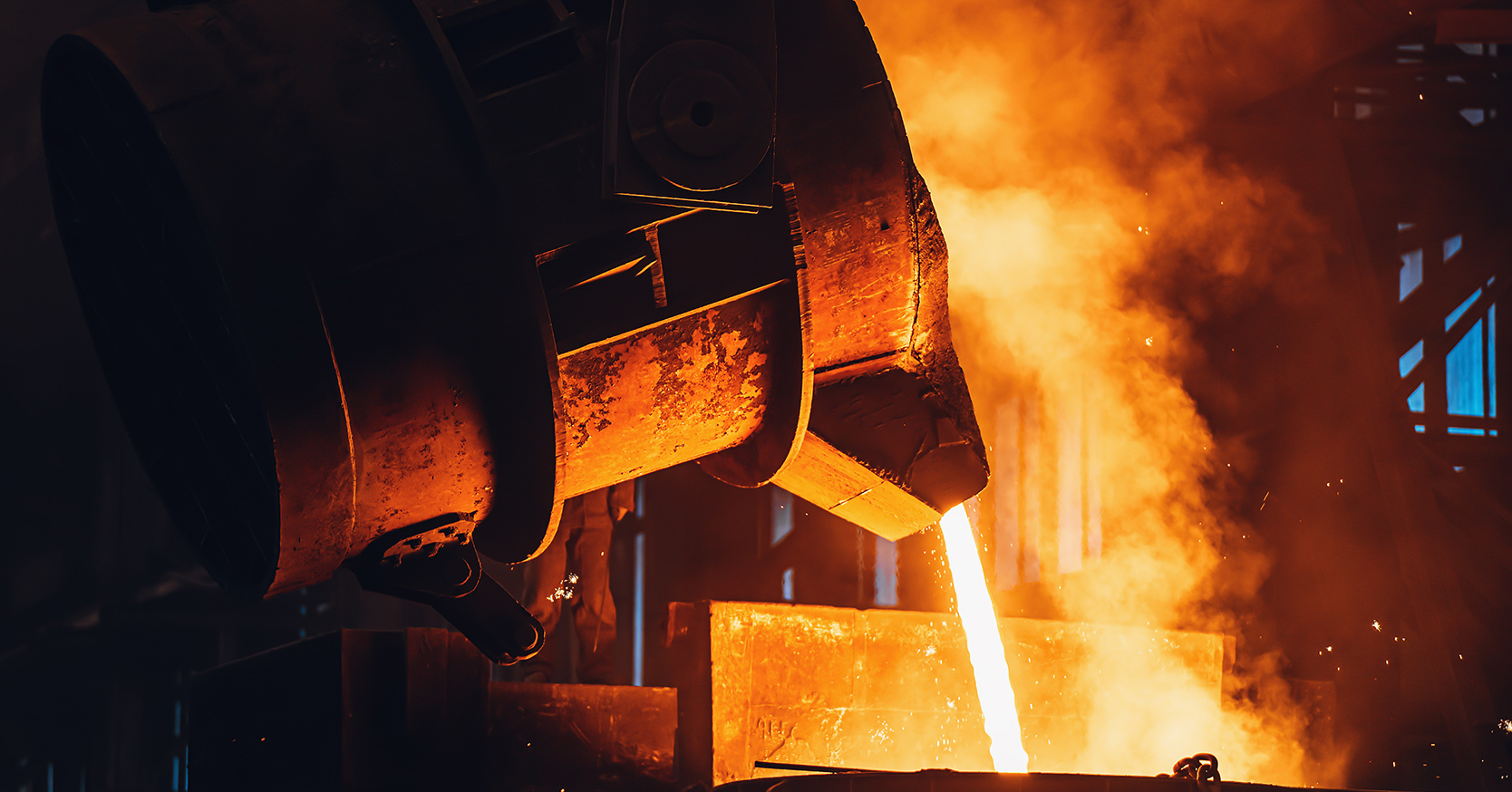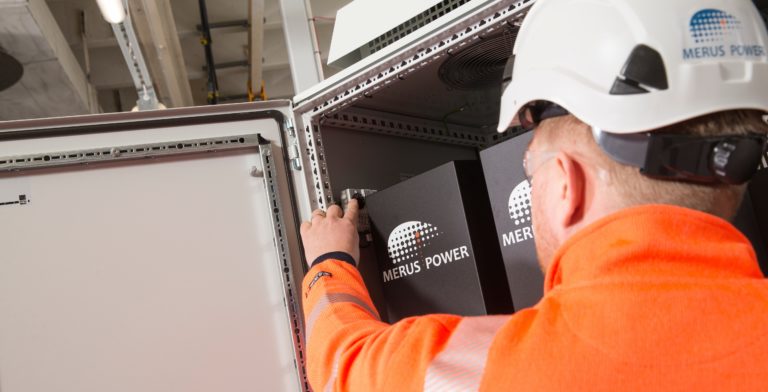Merus® A2 – Active Harmonic Filter
Merus® A2 is a scalable, versatile, and durable active harmonic filtering solution designed and manufactured in Finland using innovative Merus® technology.

Electricity providers are increasingly replacing overhead medium-voltage (MV) lines with underground cables to protect the environment and wildlife. At the same time, the growing use of modern electronic systems, such as LED lighting, solar power plants, and automated production lines, is increasing the proportion of capacitive loads on the MV network. This is especially relevant in industrial environments like foundries, where high-power equipment such as Arc Furnaces and Variable Frequency Drives (VFDs) are commonly used. These technologies distort the current waveform, leading to random disturbances, increased energy losses, and malfunctions in protective systems. As a result, the quality and reliability of the power supply can be compromised, potentially disrupting both the foundry’s operations and those of other users connected to the same network.
In the customer’s foundry, the increasing presence of capacitive loads caused significant challenges for the medium-voltage network. These loads damaged switching equipment, interfered with protection systems, and compromised the overall security of the energy supply. To counter overcompensation, the power provider had traditionally relied on Petersen coils—designed to manage symmetrical loads—but these could only be upgraded through complete replacement, offering little flexibility.
Moreover, the foundry’s modern equipment generated harmonic distortions that further strained the network. These user-induced harmonics led to higher energy losses, overheating of transformers and cables, voltage distortion, and malfunctions in sensitive systems. Collectively, these issues posed serious risks to both the reliability of the foundry’s operations and the stability of the broader MV network.
Túróczi és Társa Erősáramú Mérnöki Iroda Kft. (TTEMI), Merus Power’s local partner, developed a compact, transportable compensation station optimized for versatile industrial use to address the harmonically distorted and often capacitive reactive current in the foundry.
This all-in-one solution integrates Merus® A2 Active Harmonic Filters and all necessary components into a single unit that supports medium-voltage connection and full reactive power compensation. Each station can house up to six 200A filter modules, and for larger demands, up to five stations can be operated in parallel, supporting as many as 30 filters in total, to increase capacity and provide redundancy.
The station, designed and built by TTEMI, is modular, scalable from 0.3 to 4.0 MVA, and suitable for 1kV to 35kV systems operating at 50/60Hz. It compensates both capacitive currents and harmonic disturbances, making it ideal for deployment even in public or space-constrained areas. At the low-voltage level, the Merus® A2 filters work effectively alongside VFDs to reduce harmonics and can also be configured to manage capacitive loads.
Metallurgy, iron foundry
Győr, Hungary

Merus® A2 is a scalable, versatile, and durable active harmonic filtering solution designed and manufactured in Finland using innovative Merus® technology.
TTEMI’s solution using Merus® A2 Active Harmonic Filters at the customer’s foundry delivered a significant performance boost across the board. The system improved the medium-voltage power factor from 0.91 to 0.96, reduced Total Harmonic Distortion of current (THDi) from over 60% to below 6%, and brought voltage distortion (THDu) down from over 10% to under 3%—ensuring full compliance with EN 50160, EN 13207 and IEEE 519-2014 standards.
These improvements translated into lower energy losses, greater efficiency, and fewer disturbances for the foundry’s sensitive systems. For the power provider, the benefits were equally compelling: the solution eliminated capacitive reactive current, reduced wear on switching devices. It significantly enhanced the stability and safety of the medium-voltage network.
By simultaneously compensating for reactive power and filtering harmonics, the Merus® A2 Active Harmonic Filters helped maximize usable capacity, improve overall power quality, and reduce operational risks, making the installation a smart and future-ready investment for both the industrial user and the utility.
Please contact one of our salespeople with questions and inquiries.

Head of Sales, Active Harmonic Filter
Regions & Channels

Sales Manager, Active Harmonic Filter,
Key Accounts & OEMs

Sales Manager, Active Harmonic Filter
Baltics & Eastern and Southern Europe

Senior Sales Manager,
DACH, Benelux, France, APAC

Regional Sales Manager,
Middle East
